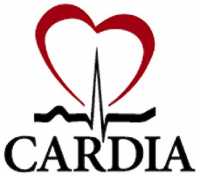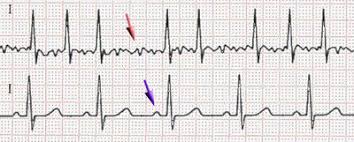Author Interviews, Heart Disease, JAMA, Surgical Research / 14.07.2020
CABG: Long-Term Outcomes Using Radial Artery vs Saphenous Vein
MedicalResearch.com Interview with:
Mario Fl Gaudino MD
Professor of Cardiothoracic Surgery
Department of Cardiothoracic Surgery
Weill Cornell Medicine
MedicalResearch.com: What is the background for this study?
Response: The radial artery is currently used in less than 10% of CABG procedures in the US.
MedicalResearch.com: What are the main findings?
Response: The JAMA paper provides convincing evidence that the use of the radial artery rather than the saphenous vein to complement the internal thoracic artery for CABG is associated with improved long-term outcomes.
(more…)






















 Deborah M Eaton
Doctorate Student / Research Assistant
Temple University
MedicalResearch.com: What is the background for this study?
Response: Heart failure (HF) with preserved ejection fraction (HFpEF) accounts for approximately 50% of cases of HF and to date clinical trials with HFpEF patients have failed to produce positive outcomes. Part of this is likely due to the lack of HFpEF animal models for preclinical testing. Our lab addressed this gap in knowledge by developing an animal model that mimics critical features of the human HFpEF phenotype. We performed an in-depth cardiopulmonary characterization highlighting that the model has characteristics of human disease. We then tested the effects of a pan-HDAC inhibitor, vorinostat/SAHA, in collaboration with Dr. Timothy McKinsey, who is an expert in HDAC inhibitors and recently published work1 that laid the foundation for this study.
Deborah M Eaton
Doctorate Student / Research Assistant
Temple University
MedicalResearch.com: What is the background for this study?
Response: Heart failure (HF) with preserved ejection fraction (HFpEF) accounts for approximately 50% of cases of HF and to date clinical trials with HFpEF patients have failed to produce positive outcomes. Part of this is likely due to the lack of HFpEF animal models for preclinical testing. Our lab addressed this gap in knowledge by developing an animal model that mimics critical features of the human HFpEF phenotype. We performed an in-depth cardiopulmonary characterization highlighting that the model has characteristics of human disease. We then tested the effects of a pan-HDAC inhibitor, vorinostat/SAHA, in collaboration with Dr. Timothy McKinsey, who is an expert in HDAC inhibitors and recently published work1 that laid the foundation for this study. 







